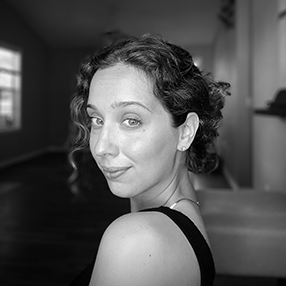Playing with Bees
So the world turned
its one good eye
to watch the bees
take most of metaphor
with them.
Swarms—
in all their airborne
pointillism—
shifted on the breeze
for the last time. Of course,
the absence of bees
left behind significant holes
in ecology. Less
obvious
were the indelible holes
in poems, which would come
later:
Our vast psychic habitat
shrunk. Nothing was
like nectar
for the gods
Nobody was warned by
a deep black dahlia, and nobody
grew like a weed.
Nobody felt spry as
a daisy, or blue
and princely
as a hyacinth; was lucid as
a moon flower. Nobody came home
and yelled honey! up the stairs,
And nothing in particular
by any other name would smell as sweet as—
Consider:
the verbal dearth
that is always a main ripple of extinction.
The lexicon of wilds goes on nixing its descriptions.
Slimming its index of references
for what is
super as a rhubarb, and juicy
as a peach,
or sunken as a
comb and ancient as an alder tree, or
conifer, or beech, what is royal
as jelly, dark as a wintering
hive, toxic as the jessamine vine
who weeps the way a willow does,
silently as wax
burned in the land of milk and
all the strong words in poems,
they were once
smeared on the mandible of a bee.
Copyright © 2023 by RK Fauth. Originally published in Poem-a-Day on April 29, 2023, by the Academy of American Poets.
“This poem is the prelude to my first collection, Playing with Bees, which catalogs moments in time as artifacts after a fictional bee extinction. The image of ‘the world turning its one good eye’ came to me after watching a swarm of starlings. The birds made these mesmerizing, intelligent patterns against a sunset undoubtedly made extra vibrant by light pollution. It made me wonder, what happens to my imagination, my language, my daydreams, every time a peg in the environment is removed? Without, say, bees, what of this poem would shrivel and disappear? How much of me would the bees take with them?”
—RK Fauth

